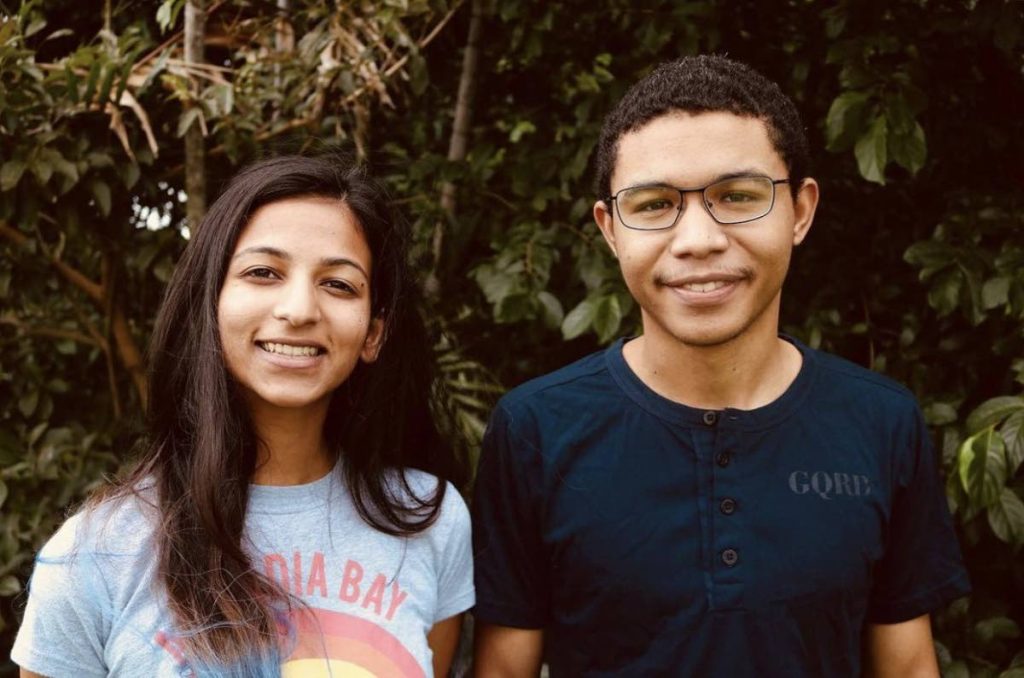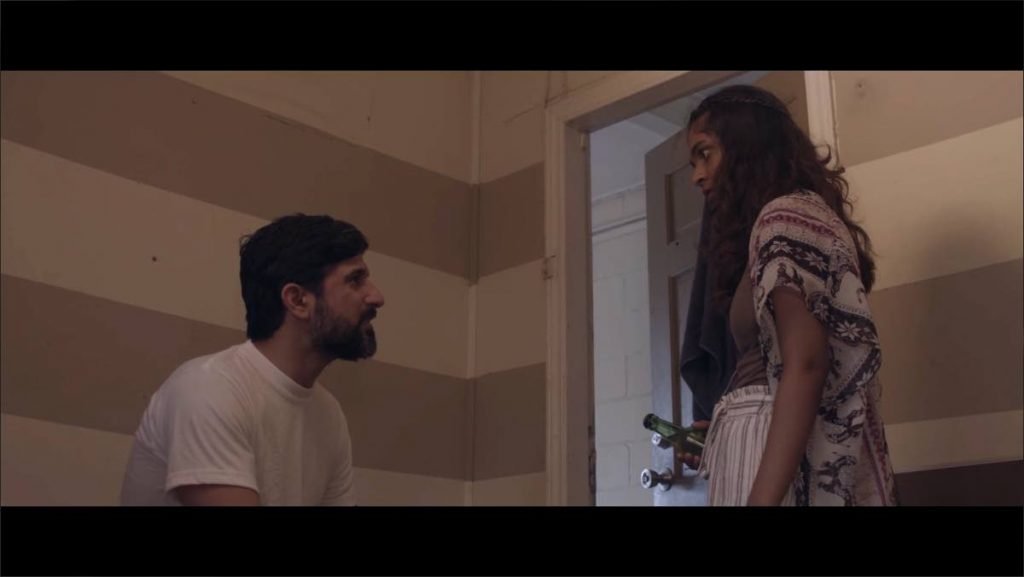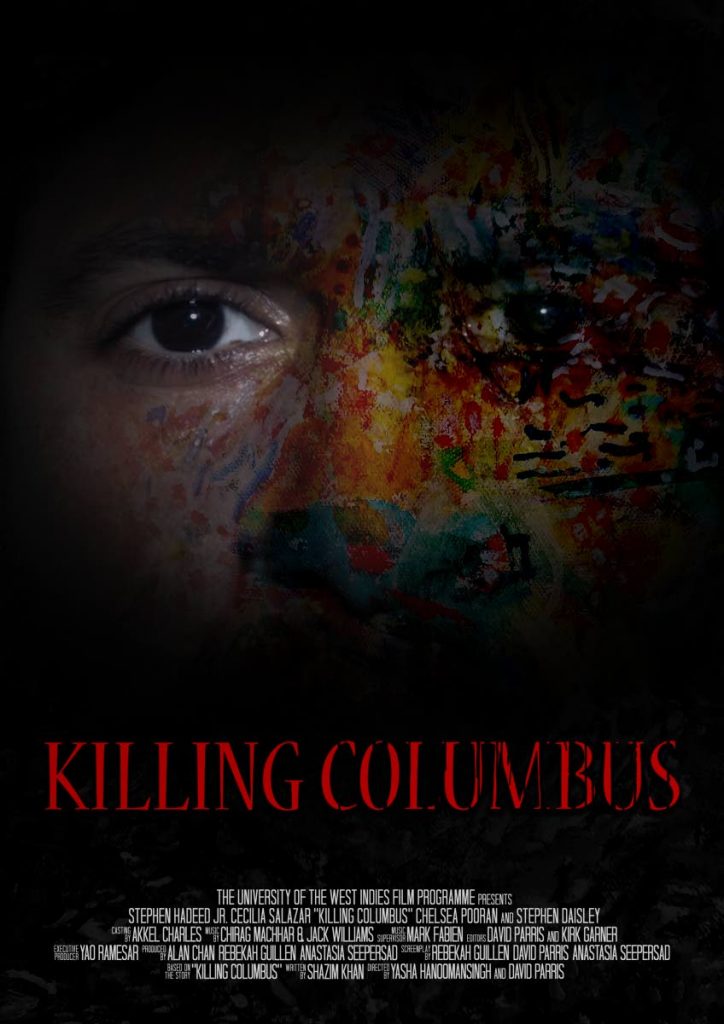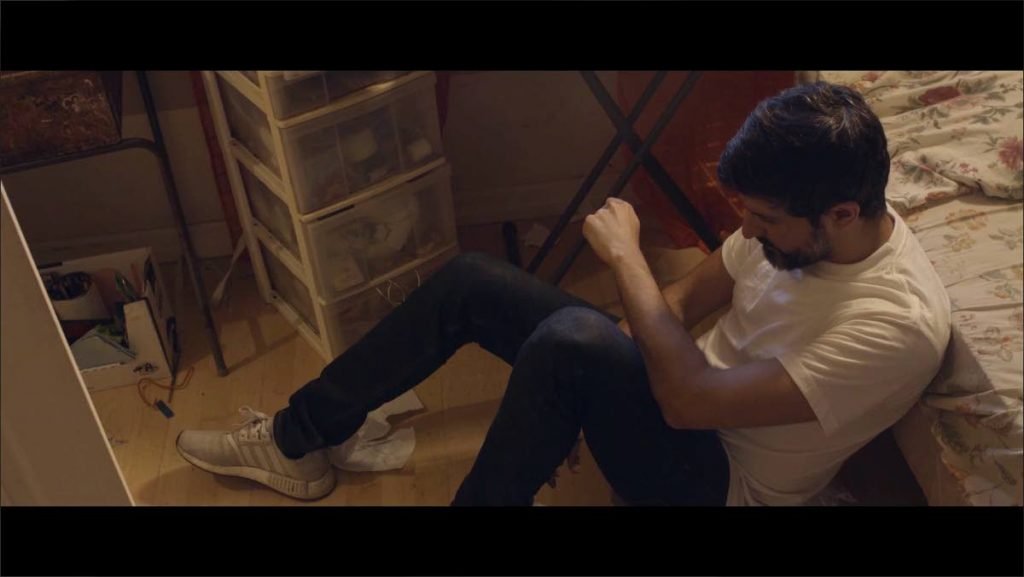Filmmakers explore history through an artist's struggles in Killing Columbus

Killing Columbus is a local film about a once famous artist, Donny, played by Stephen Hadeed Jr, who is now struggling in his career.
He returns to TT and has to stay with his now more successful protege, Anya, played by Chelsea Pooran. In an attempt to get back in the limelight and to make some money, he takes a commission for a portrait of Christopher Columbus from a woman named Isabella, referencing Queen Isabella of Spain who sponsored Columbus’ voyage, even though it went against his ideals.
Because of his mixed feelings, he self-consciously paints a self-portrait which comes to life and embodies all of his most negative values and qualities.
Directed by Yasha Hanoomansingh and David Parris, two 23-year-olds with a passion for film, Killing Columbus premiered at the TT Film Festival (TTFF) on Thursday.
Hanoomansingh and Parris met at the university of the West Indies (UWI) in 2017 at the beginning of their film production programme and have been friends ever since. And Killing Columbus is a movie they did together for their final year class, Capstone.
In 2020, Parris graduated with double honours in film production and film studies and Hanoomansingh will graduate with honours in film production and communication studies in October.
Hanoomansingh said their Capstone lecturer, Yao Ramesar, presented them with several scripts from previous years to choose from to use as a template.
“Our original idea was about cultural erasure and that whole theme of identity. When we read the script for Killing Columbus, which was originally written by Shazim Khan, we felt it was the most natural choice as it related the most to what we had planned to do, this topic of the erasure and whitewashing of history and culture.”
She said as filmmakers they are protective of their cultural identity, and so preserve it as much as possible in the art they create. Therefore, the fact that Columbus is an issue in TT society was one of the things that drew them to the script. (There are calls for a statue of Columbus to be removed from a square in Port of Spain as part of a movement against colonial monuments.)

Parris added that Columbus is an allegory for art which is subjective but very powerful. He said one of the lines in the film is, ‘It’s dangerous to create anything carelessly,’ because others could use it for propaganda or their own agendas.
Hanoomansingh described the filmmaking process as tiring, stressful but unforgettable, “an experience unlike any other.”
The first thing they did was completely re-write the script although they kept some of the original plot points.
They began shooting at the end of 2019, most of it at the home of actor Cecilia Salazar, who played Isabella, with different sets in different rooms.
By the time the pandemic hit TT in March 2020, about 80 per cent of the film was complete. But because of the health restrictions, they could not film a pivotal scene, which made them have to scrap three completed scenes.

Parris as well as writers Kirk Garner, Rebekah Guillen had to re-work the script, writing new scenes and including voiceovers to provide context and fill in the gaps of the deleted scenes.
The only thing to change from the Capstone version of the film to the one shown at the TTFF, was the score.
Initially, they used temporary music but for the film festival their lecturer, Andreas Antonopoulos, put them in touch with a lecturer from the University of Huddersfield, England. That lecturer recruited students who were interested in contributing to the film which led them to the film’s music supervisor, Mark Fabian and composers Chirag Machhar and Jack Williams.
Killing Columbus is Parris’ third contribution to the film festival through the years, and Hanoomansingh’s second.
“I thought it was a good opportunity so as no to have our Capstone film just sitting doing nothing. I think it’s a good way for newer filmmakers to get their name out there,” said Parris.

Hanoomansingh agreed saying, “It’s nice to make something and make use if it. But aside from the exposure, being able to celebrate yourself and have others celebrate your work, and expanding the local industry, it also spreads awareness for the actual issue.”
She said many people did not know or understand the full impact of Columbus’ actions, so it was good to share that knowledge with others.
As her father is journalist Gideon Hanoomansingh, Hanoomansingh said she grew up around video cameras and the media.
“It wasn’t necessarily something I had planned to go into but I always had an interest in the camera. It was natural to me to gravitate toward the technology and learning to shoot.
“I’m actually a music artist, which is what I always wanted to pursue. I shoot my own music videos to post online, but when I entered university I ended up doing film. The very first film class I took kickstarted this part of my brain I didn’t know existed. There was so much passion, so much excitement to learn. I love movies but I never thought it could apply in such a real way.”
She has been performing under the name Yasha H since 2016, and plays the ukulele and other instruments.
She said her parents and sister – Gideon, Prematie, and Zysha – are supportive of everything she does. She admitted that initially her parents were not very happy about her pursuing music but they saw how passionate she was about being a creative and soon accepted it.

And although she would like to continue making films, she sees her career being in the arts in general.
“As I’ve gotten older, I’ve acquired new interests and passions like film. As an independent artist who makes my own videos and promos, and produce my own stuff, I would definitely like to see them converge.”
Unlike Hanoomansingh, Parris originally wanted to be an engineer. Ironically, that interest was sparked when he watched the first Iron Man movie and wanted to make a similar suit.
He also had an interest in movies, but the behind-the-scenes aspect – how they made the magic. He was interested but did not want to do it until he and his school friend, Donovan Leekin, convinced him that they should make random YouTube videos.
“From the time we started to plan out the shoots and were setting up and I got involved in the world behind the camera, I fell in love with film.”
He said he got a lot of “push back” from his family as they could not see film as being a viable career. They encouraged him to stick with engineering and do film as a hobby but filmmaking was something he needed to do.
“After CAPE I took a gap year and told my parents, ‘I’m going to do film. I did everything you all told me to do, I continued doing things to keep you all happy, but I want to do film.’”
He took every opportunity to do film and graphic design workshops, as well as small jobs or internships.
It was only when he and his mother, Denyse, went to see his cousin, actor Ruby Parris, in a local film at a previous film festival that she started to relent. It was when she saw the local talent and the passion others had for the industry that she encouraged him to pursue his dream.
Parris said his father, Derek, changed his mind about film during his first year at UWI when he asked him to be an extra in a short film he was directing. Derek saw the hard work that went into the film, saw his son in action, and became excited about the idea.
“I think it’s interesting how a filmmaker is able to make someone in the audience want to be like a character they created or spark the interest of an audience member to be a filmmaker themselves. That’s what I want to do for future audiences both local and international.
“I want to help empower beginner filmmakers. I want them to be confident in their own creation no matter where they start from. Anybody should be able to do film no matter their age, race, past, gender, sexual orientation – none of that should matter because film should be for everybody. There should not be gatekeeping on who can and can’t be a filmmaker.”
He lamented that many people are dismissive of the arts.
“People have to understand, having a major in film from UWI is not just doing film. It’s a film major, a cultural studies major, a history major, a gender studies major, research skills – all those things go into making film. Film is not just picking up a camera and shooting something.”
Hanoomansingh added, “The stigma in our society, of working in the arts being frowned upon because it’s not a ‘real, sustainable job’, needs to die.”
She said working in a creative industry can be fun but that does not mean it is not hard work.
Parris also dislikes the perception that if a film is a student film, it will be of poor quality or amateur work so industry professionals do not take them seriously.
Hanoomansingh agreed saying, “Art in general is so subjective it would be wrong to limit its making to a certain group of people before calling it professional work. It’s unfair and limiting to creativity.”
“Especially in a space where you want to expand, but you’re excluding a lot of people,” added Parris.
Killing Columbus premiered at the TTFF on September 23 but the directors plan to put make it available outside of the film festival in the near future. In the meantime, interested parties can view behind-the-scene glimpses of Killing Columbus on Instagram at @killingcolumbus2020.

Comments
"Filmmakers explore history through an artist’s struggles in Killing Columbus"